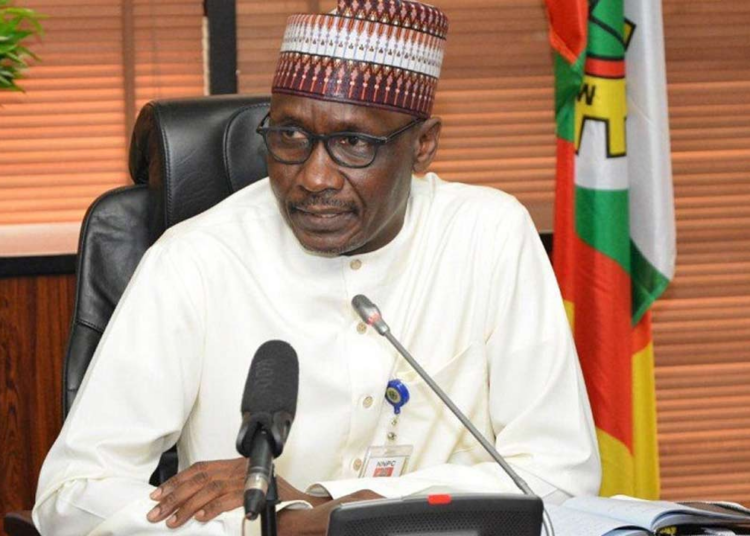Nigeria is currently driving oil production targeting to meet its allocated level by the Organization of Petroleum Exporting Countries (OPEC).
The Nigerian Upstream Petroleum Regulatory Commission (NUPRC), in a document titled ‘Nigerian Upstream Petroleum Sector: Value Optimisation, Energy Transition and Regulatory Perspectives,’ disclosed that the country is looking at producing about 681,000 barrels of crude oil per day and 1.52 billion standard cubic feet of gas daily from new oilfields. In the document, the chief executive of NUPRC, Gbenga Komolafe, explained that incremental volumes of crude were expected from new wells and well re-entry.
To him, “we have also completed the 2020 Marginal Field Bid Round and issued 50 Petroleum Prospecting Licenses to deserving awardees. It is expected that with the existing discoveries in the awarded fields, an early Field Development Plan would be pursued by the awardees leading to incremental oil and gas production. “The Commission is facilitating timely approvals for expedited re-entry and early production. The estimated incremental production from the awarded fields is approximately 58,000bpd and 87mmscf/d. “In the short/medium term, we expect an estimated incremental volume of 461,000bpd and 565mmscf/d from new wells and well re-entry. In the long term, we expect an estimated incremental volume of 162,000bpd and 868mmscf/d from FDPs, which have been approved and are at various stages of execution.” Komolafe further noted that the implementation of Host Community Provisions under Section 235 of the Petroleum Industry Act 2021 saddled the commission with the responsibility of ensuring conducive and peaceful relationships among stakeholders within the host communities. This, he said, would be done through the implementation of the Host Communities Development Trust. “The commission, in collaboration with the relevant stakeholders, has developed templates and gazetted regulations, which include that of the Host Community Development Trust. “The essence of the HCDT is to integrate oil-bearing communities into the value chain and effectively cater for the development needs of impacted communities, thus positively curbing restiveness in such communities and offering an enabling environment for operators to thrive. “This is expected to guarantee seamless operation, boost investor confidence, and provide an enabling environment for sustainable development of the country’s hydrocarbon resources,” Komolafe stated. He added that, NUPRC was happy to disclose that over 60 Host Community Development Trusts had been approved by the Commission.
“This is indeed a milestone in the implementation of the PIA, 2021,” he stated. The federal government and its agencies have been making efforts to grow the country’s crude oil output in a bid to meet the 1.8 million barrels per day quota approved for Nigeria by the Organisation of Petroleum Exporting Countries (OPEC). Meanwhile, the Nigerian National Petroleum Company (NNPC) Limited has reiterated its commitment to stop oil theft and losses as oil production rises above 1.6 million barrels per day.
At the Nigerian oil and gas industry stakeholders event assembled to discuss the challenges of crude oil theft and losses affecting the industry and chaired by the vice president, Prof. Yemi Osinbajo; the group chief executive officer of NNPC Limited, Mr Mele Kyari, represented by the company’s Chief Upstream Investment officer, Bala Wunti, said, the rectangular approach comprising NNPC Ltd and Partners, Regulators, Government Security Operators and the Communities underpinned by the adoption of technology have ensured the recovery of production from an all-time low of sub-one million barrels of crude oil production per day in July 2022, to the current production figure of 1.67 million barrels per day.
According to Wunti, “the implementation of the 3DR strategy (Detect, Deter, Destroy, and Recover), the establishment of the Central Command and Control Centre for effective monitoring and coordination, the launching of the Whistle-Blowers Portal and the Crude Oil Validation Portal, and the deployment of some of the best-in-class surveillance tools and technology have been a game changer in the fight against crude oil theft and vandalism.
“A key element of the collaboration has been the onboarding the Private Security Contractors from the host communities, which were hitherto isolated”, Wunti stated, adding that, their in-depth knowledge of the terrain and modus operandi of the criminals have led to massive discoveries of illegal connections and interception of vessels ferrying stolen crude oil.
The event was also an opportunity to reflect on the progress recorded over the last twelve months following the introduction of the industry-wide security collaboration for the protection of hydrocarbon infrastructure.
With the current sustained efforts, facilities that have been shut down have reopened, and injection of crude oil into major trunklines for evacuation to the terminals is being ramped up. Nigeria’s crude oil production output is steadily growing to hit the 1.8 million barrels per day OPEC quota. The production growth implies significant economic benefits for the country and all stakeholders.
The Nigerian oil and gas industry is poised to reposition itself for a sustainable growth trajectory as the efforts to rid Nigeria of the menace of crude oil theft continue to gain traction. A lot of work has gone into changing the narrative and bringing all the industry stakeholders together to confront a common enemy.
Experts, however, argued that Nigeria’s oil and gas industry needs a reset as years of underinvestment, crude theft and sabotage have weighed down output.
Oil production hit a low of 1.1 million barrels a day bl/d in mid-2022, almost half that seen in January 2020.
Although, output in December 2022 was up to 1.4mn bl/d of crude and condensate, the medium-to-long-term outlook is not encouraging, and the 2mn bl/d it reached just a few years ago seems a distant memory.
The current administration was able to oversee the passage of the long-awaited Petroleum Industry Act (PIA), but subsequent implementation has been slow. And crucially, the passage of the PIA has not stopped International Oil Companies(IOCs) from reducing their Nigerian footprints.
Boosting oil production, accelerating gas monetisation (both for domestic use and export), reinvigorating exploration and positioning state-owned NNPCL, to thrive as a commercial entity are just some of the critical areas that need urgent attention.
Falling oil production has been a lingering concern, particularly for onshore operators. Output from the onshore sector reached a low in 2022 and to further highlight the scale of the problem, production was already way below capacity in 2020.
Multiple illegal ‘taps’ have been reported on key pipelines which has resulted in tangible losses between the wellhead and terminal.
Data from national regulator the Nigerian Upstream Petroleum Regulatory Commission for December 2022 indicates utilisation at Forcados is now at 60 per cent while utilisation at the Bonny and Brass terminals is still less than 20 per cent. Given the fact there remains huge upside in the Niger Delta, addressing the infrastructure challenge is critical if operators are to be encouraged to increase investment.
The challenging environment is one of the key drivers forcing IOCs such as Shell and TotalEnergies to divest from the Niger Delta region.
The IOCs have sold close to 20 licences in the last decade, mainly to Nigerian independents. But most of these local players have fared no better, and crude losses have persisted particularly in the eastern Delta.
Although a few operators are considering new export routes, such as the Alternative Crude Oil Evacuation System, fixing the fundamental problem with the major trunklines should be top priority.
The offshore sector has been immune from the onshore challenges, but investment has been limited in recent years.
ExxonMobil and Chevron are the dominant players shallow-water areas while the Chevron joint venture’s (JV’s) $1.4bn capital commitment, agreed at the end of 2022 offers a ray of hope, but no other tangible commitments from other JVs are on the horizon.
The deepwater sector was once a growth engine for the country. But investment in new projects has also dried up. The last deepwater project to receive FID was the TotalEnergies-operated Egina project in 2013. The pipeline of new deepwater projects is weak, and this is the result of the lack of exploration.





